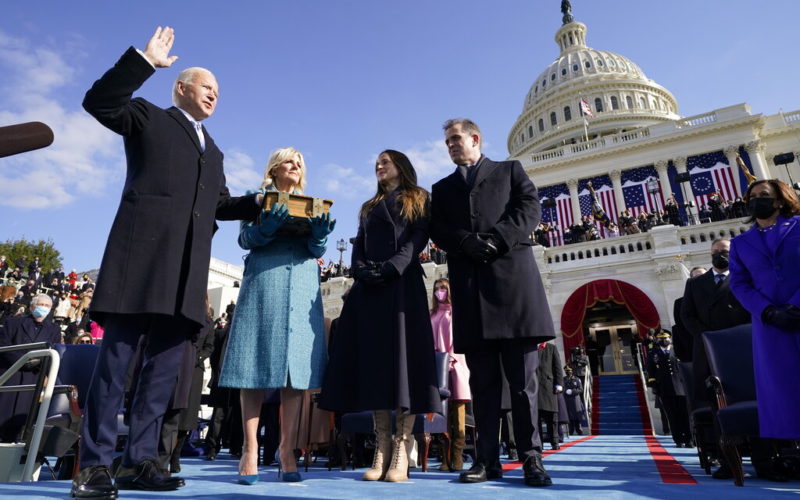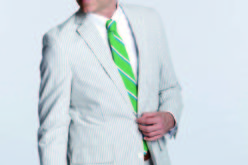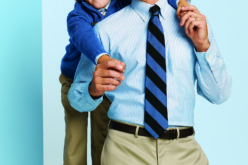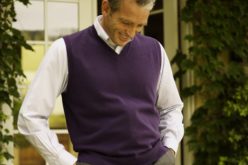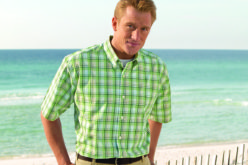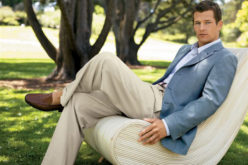Q. At the inauguration all the men (regardless of party) looked more crisp and certainly more current in their overcoats and suits than my husband. He is younger, in better shape, and (I’d say) better looking than many of them. What should he be telling his tailor that he wants to improve and modernize his coat and suits?
A. What you see as two C’s – “crisp” and “current” – is primarily another, “classic,” particularly in tailoring. As you may have noticed, these days the fashion-forward style icons are athletes, even more so than movie stars and musicians, and certainly more so than politicians. Politicians know that for them it is best “to blend in to fit in” rather than “stick out to stand out.” What some might consider boring dressing is actually safe dressing.
Dressing for leisure and social occasions, such as going out at night, are the times that allow an individual to make more of a style statement in color, fabric, and cut, than when he is dressing for business. Nothing could be more serious business for a politician than an inauguration. That is why we saw so many men from both sides of the aisle beautifully and quietly dressed in tasteful clothes that could not have been more traditionally correct.
Whether Republican or Democrat, whether currently or formerly in office, just about every man who was well-known enough for us to recognize him behind his mask, was dressed pretty much the same. (Except, of course, for Bernie Sanders.) They almost all wore their cold-weather boardroom look: a navy blue topcoat over a dark blue suit, or a black coat over a charcoal gray suit; a white slight-spread-collar dress shirt; and (usually) a medium-blue necktie.
When one reviews the tailoring, we find cuts that were safe and conventional, but modern. These included classic elements: mostly single-breasted, only a few were double-breasted, very little shoulder padding, and coats at the current to-the-knee or above-the-knee length.
Since it sounds as if your husband is lucky enough to have a tailor he trusts, he should have him update any of his garments that don’t have today’s youthful look. The key is to remove excess fabric. These days a man will look dated if he is still wearing a coat that is too long (below-the-knee), too much shoulder padding, a three-button suit, or pleated trousers that are too full and/or too long.
Today’s coats do not have a straight up-and-down silhouette; they have a bit of noticeable suppression at the waist for a very slight hour-glass shape. A good tailor can do this. Keep in mind that some things cannot be altered to make them right. Shoulders that are too big are a lost cause, and significantly outdated or mis-sized pants probably aren’t worth tailoring. Pants that can be adjusted, need to be tapered for a trim look, and slightly shorter with less of a break.
Despite the fact that most men have unfortunately given up wearing a necktie, I noticed that the men at the inauguration, in honor of and paying respect to the occasion, all wore a necktie. (And almost every one of them had knotted his tie properly, so it included a dimple.) I’m sure the contrast between a bright necktie and a white shirt contributed to the “crisp” image you admired. Interestingly, an excellent eye-drawing tie creates and supports the established formal look to such an extent that the rest of the suit (and coat) seem better and of higher quality.
As my regular readers have certainly noticed, I am a big fan of neckties, and not just because they are part of “proper men’s attire.” No, my biggest reason for advocating that men should not abandon their ties is because wearing a tie is such a totally simple way to separate yourself from everyone else in the room. In a sea of dark, similar-looking suits, a well-chosen, good-looking tie sets you apart from, and above, the crowd.
We all make every effort we can to be special, to not just blend in and disappear. Why ignore a surefire method that can work so easily and effectively to be distinctive?
It is widely believed that the big points of difference for a man are his watch and his shoes. Since we could not see either of those on the men we were observing at this outdoor event, we got our impression of them from what we could see – those well-cut coats and trim trousers. Looking good often depends on what business a man is in and what the people at the top in his field wear. In politics and in most business, you can’t go wrong paying attention to the small details.
Please send your men’s dress and grooming questions or comments to MALE CALL: Lois.Fenton@prodigy.net

